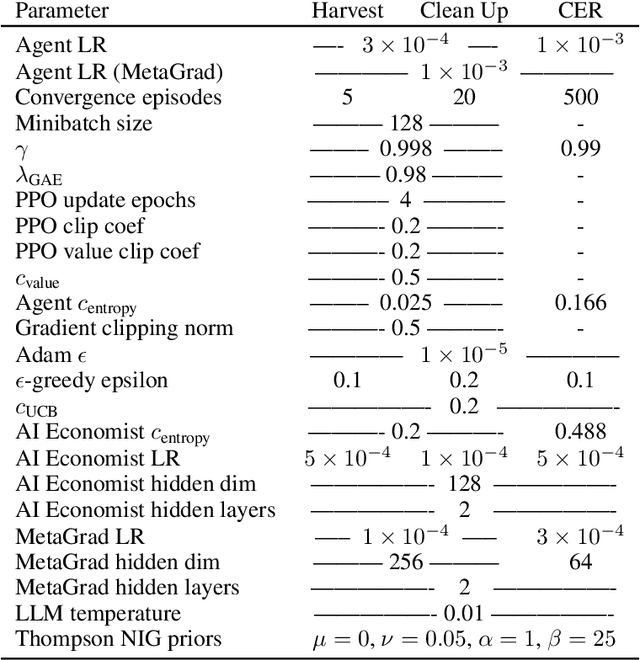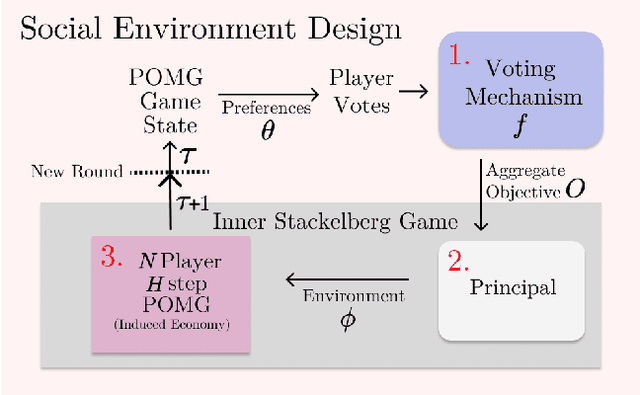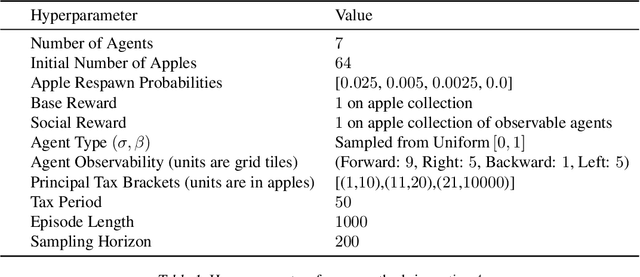Henry Gasztowtt
Creating a Cooperative AI Policymaking Platform through Open Source Collaboration
Dec 09, 2024

Abstract:Advances in artificial intelligence (AI) present significant risks and opportunities, requiring improved governance to mitigate societal harms and promote equitable benefits. Current incentive structures and regulatory delays may hinder responsible AI development and deployment, particularly in light of the transformative potential of large language models (LLMs). To address these challenges, we propose developing the following three contributions: (1) a large multimodal text and economic-timeseries foundation model that integrates economic and natural language policy data for enhanced forecasting and decision-making, (2) algorithmic mechanisms for eliciting diverse and representative perspectives, enabling the creation of data-driven public policy recommendations, and (3) an AI-driven web platform for supporting transparent, inclusive, and data-driven policymaking.
Large Legislative Models: Towards Efficient AI Policymaking in Economic Simulations
Oct 10, 2024



Abstract:The improvement of economic policymaking presents an opportunity for broad societal benefit, a notion that has inspired research towards AI-driven policymaking tools. AI policymaking holds the potential to surpass human performance through the ability to process data quickly at scale. However, existing RL-based methods exhibit sample inefficiency, and are further limited by an inability to flexibly incorporate nuanced information into their decision-making processes. Thus, we propose a novel method in which we instead utilize pre-trained Large Language Models (LLMs), as sample-efficient policymakers in socially complex multi-agent reinforcement learning (MARL) scenarios. We demonstrate significant efficiency gains, outperforming existing methods across three environments. Our code is available at https://github.com/hegasz/large-legislative-models.
Social Environment Design
Feb 21, 2024


Abstract:Artificial Intelligence (AI) holds promise as a technology that can be used to improve government and economic policy-making. This paper proposes a new research agenda towards this end by introducing Social Environment Design, a general framework for the use of AI for automated policy-making that connects with the Reinforcement Learning, EconCS, and Computational Social Choice communities. The framework seeks to capture general economic environments, includes voting on policy objectives, and gives a direction for the systematic analysis of government and economic policy through AI simulation. We highlight key open problems for future research in AI-based policy-making. By solving these challenges, we hope to achieve various social welfare objectives, thereby promoting more ethical and responsible decision making.
 Add to Chrome
Add to Chrome Add to Firefox
Add to Firefox Add to Edge
Add to Edge